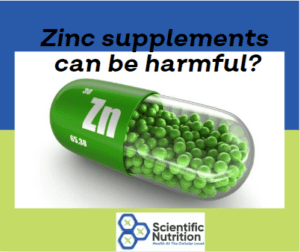Everything you need to know about Magnesium
Magnesium or Mg on the table of elements is the 4th abundant mineral in your body, responsible for thousands of enzyme reactions and 600 cellular activities. From heartbeat blood pressure to muscle contraction and emotional well-being…it plays its role in every function of your body. It is irreplaceable, unlike other minerals that can pinch hit.
We are going to dive more into how it affects you and what if you are too high or too low in this necessary mineral.
Magnesium deficiency and its physical, mental, and emotional consequences
You need magnesium to stay healthy. Your body needs it to stay active. Your brain needs it to function correctly. Simply put, every single cell in your body needs this mineral. Over-exercising and stress can burn up much-needed stores quickly.
Surprisingly, 68% of Americans don’t get the recommended intake. The recommended daily allowance (RDA) is the minimum you need to avoid deadly consequences, not the optimal or needed amount for most people.
The results of being low? You feel less alive. Your body feels like a burden. Your brain can become foggy at the least.
Fun fact: People rarely get excessive magnesium intake. It only happens when you use large amounts of magnesium supplements. But if, in any case, you are facing magnesium poisoning (toxicity), the symptoms will be diarrhea, vomiting, etc.
In this blog, I will show you what magnesium deficiency or toxicity can do to your physical, mental, and emotional health.
The crucial functions of Magnesium
Magnesium is often called the “mighty mineral”. To better understand the deficiency consequences, you need to know more about what functions magnesium does for your body.
1. Muscle function and relaxation
Magnesium regulates muscle contractions. It ensures smooth muscle function, allowing the muscles to contract and relax harmoniously. Whether you are a professional athlete or just a regular weekend gym goer, your body relies on magnesium for optimal muscle performance.
2. Energy production
Magnesium is a linchpin in the energy production process. It activates ATP (Adenosine Triphosphate). ATP is the body’s primary energy currency. This mineral ignites the cellular furnaces, enabling you to do tasks with stamina.
3. Nerve function
Nerves transmit messages at lightning speed. Magnesium ensures this happens seamlessly. It supports the flow of ions across nerve cell membranes like a conductor. It facilitates the transmission of signals and maintains your ability to move, think, and feel.
4. Heart health
The heart relies on magnesium for steady beats. It helps regulate the heart’s electrical activity and is known as the “spark to your heart”. Balanced magnesium reduces the risk of arrhythmias and other cardiac issues.
5. Bone health
Regarding bone health, calcium is often considered the primary mineral. 60% of our tissue Mg is in our bones. It also plays an essential supporting role in aiding the metabolism of calcium. Together they contribute to strong and resilient bones.
6. Blood glucose regulation
Magnesium enhances the body’s response to insulin and regulates blood sugar levels. Insulin is crucial in diabetes management as magnesium ensures glucose is efficiently transported from the bloodstream into cells.
7. Detoxification
This essential mineral is required for your liver activity to clean up toxins and get them moving out of the cells.
What is Magnesium deficiency, and how does it occur?
Magnesium deficiency, or hypomagnesemia, arises when the body’s magnesium levels fall below the optimal range.
This can occur due to various factors, some of which I will explain below. Its effects may not always be immediately apparent, which makes it a silent health concern with far-reaching implications.
Causes of Magnesium Deficiency
Imbalanced and insufficient diet:
So many people are fast food addicts these days. It is one of the most common causes that lead to magnesium deficiency. This serious deficiency is called Hypomagnesemia and will hit you hard. You are lacking proper magnesium-rich foods, such as leafy greens, nuts, and whole grains.
Medical conditions:
Certain medical conditions, such as gastrointestinal disorders (i.e., Crohn’s Disease) and kidney diseases, can impede magnesium absorption. These medical conditions further exacerbate the risk of deficiency, even if you try to get enough from your food.
Medications:
Some medications, especially diuretics, proton pump inhibitors, and certain antibiotics, can deplete magnesium levels as an unintended consequence of their primary actions.
How can you avoid, decrease, or get off of them? Go back and reverse engineer the process of what went wrong, causing the issue.
What can cause Magnesium toxicity?
There are a few important reasons that would allow Mg to build up in your tissues:
Mineral imbalance
If one has Calcium toxicity they will most likely have a Magnesium one as well as it tends to follow Ca up to help keep in solvent in the bloodstream. Once your system has used all of the bioavailable forms that it needs, it becomes metastatic or unusable.
If one is Mg toxic, a Calcium shell will form around the cells. They will be belligerent and emotionally cold.
Guessing Magnesium needs and supplementing
Taking supplementation without the necessary balance with Calcium will not only accumulate Mg, it will strip bones of Calcium.
Diet draining your Mg
Grains, high phosphorus, fluoride ingestion, and a low protein diet can contain phytates that hinder your absorption of this mineral. Eating processed foods that are low in Mg can drain your cellular stores quickly as well.
Physical symptoms of Magnesium deficiency
When magnesium levels dip below, they affect you more than just discomfort. Magnesium deficiency affects the quality of life and long-term health. Here are some of the physical consequences;
Muscle cramps and spasms:
Mg acts as a natural muscle relaxant and regulates the flow of calcium ions in muscle cells. In deficiency, this balance is disrupted, which leads to hyper-excitability in the muscles. As a result, painful cramps and spasms become frequent.
Cardiovascular issues:
Magnesium deficiency can lead to irregular heart rhythms (arrhythmia), palpitations, angina, tachycardia, heart attacks, and contribute toward hypertension. These issues can have severe implications for cardiovascular health. Remember the muscle spasms? Your heart is one of the largest muscles in your body that needs this essential mineral.
Osteoporosis and bone health:
Magnesium aids in calcium absorption and bone mineralization. A deficiency can weaken bones, which increases the risk of Osteopenia then Osteoporosis, and fractures.
Fatigue and weakness:
Magnesium is integral to energy production. A deficiency can result in persistent fatigue and weakness. You may find yourself drained of vitality, struggling to carry out routine tasks, and experiencing less physical endurance.
Gray or white hair:
It may sound crazy, but as we are stressed, we release Calcium, Magnesium, and Zinc to calm ourselves. When these white minerals are used and pushed out of the body, they replace the natural hair color with a lighter, gray, or white hue. If you have had someone in your life experience a huge trauma and “turn gray” quickly, it may have been a massive utilization of these minerals for calming a stressful situation.
Physical symptoms of Mg toxicity
A lack of this electrolyte can slow your oxidation/metabolism rate, causing fatigue or full-on lethargy. Chronic diarrhea, low blood pressure due to weakened muscle tissue, and weak body muscles are common. Often, the symptoms are similar to low levels, as it is no longer bioavailable.
Mental symptoms of Magnesium deficiency
This deficiency impacts your mental well-being! Below are some of the most alarming mental consequences;
Anxiety and stress:
Magnesium is the natural tranquilizer of the body fostering relaxation by regulating neurotransmitters. An example would be GABA (Gamma-Aminobutyric Acid). In deficiency, the balance tips, making individuals much more susceptible to anxiety and stress.
Depression:
Medical studies directly link magnesium deficiency and mood disorders, particularly depression. Magnesium plays a crucial role in serotonin regulation, and it is a neurotransmitter associated with mood. On a Hair Mineral Analysis, it is also linked to Nickel toxicity.
Cognitive function:
Deficient levels can slow neurotransmitter signaling, affecting memory consolidation and focus. Individuals may experience memory lapses, difficulty concentrating, and reduced mental clarity.
Mental symptoms of Mg toxicity
You won’t only feel drained, you may suffer from depression and mental fogginess. The high level shown purging out of the body on a Hair Analysis indicates elimination of the biounavailable excessive form.
Emotional symptoms of Magnesium deficiency
Magnesium deficiency casts a shadow on emotional health in ways such as;
Irritability and mood swings:
This mighty mineral profoundly influences dopamine, which controls mood regulation. In a deficiency situation, dopamine imbalance can lead to irritability and mood swings. Belligerence and full-out anger are associated with low levels.
Sleep disturbances:
Magnesium regulates GABA, which promotes relaxation and sleep onset. With a deficiency, disrupted GABA function can result in sleep disturbances, including insomnia and restless sleep. You would find yourself being cranky, foggy, and irritable at the least.
Stress resilience:
Magnesium is a natural stress modulator influencing the Hypothalamic-Pituitary-Adrenal (HPA) axis. It is a key player in the body’s stress response. In a Mg deficit, the HPA axis dysregulation can reduce stress resilience and cause chronic stress.
Emotional symptoms of Magnesium toxicity
It sounds off, but an excess amount becomes an unusable form, so it can cause the same symptoms as a deficiency. Basically, there is no bioavailable form around, and the toxic one is stuffed into tissues for detoxification. This can cause the exact symptoms as low levels showing belligerence, or they may become withdrawn.
How to discover, assess, and prevent Magnesium deficiency or toxicity?
There are tools you can use to find out if you have a deficit or toxicity in many minerals, including this all-important one. Some are more invasive, some measure at the moment, some are long-term, and most importantly a true picture as found on a Hair Mineral Analysis.
Assessment and discovery
As magnesium is inside the bones and blood, it is difficult to measure the exact ratio from a medical perspective if you want the deepest value. Healthcare professionals employ several diagnostic methods:
Blood tests:
Serum magnesium levels offer valuable insights but may not always reflect the true body stores. It’s a temporary and at this instant only method of measurement.
Ionized Magnesium tests:
These tests measure the blood’s biologically active form of magnesium. These tests provide a more accurate assessment than blood tests, however, they won’t reflect the bio-unavailable or inactive form that is stuck in the body.
24-Hour urine collection:
This method assesses the amount of magnesium excreted through urine. Although it offers a more comprehensive view, it is limited to 24 hours, is time intensive, and may change day-to-day results.
Hair Mineral Analysis:
Hair mineral analysis can provide insights into long-term magnesium levels. It is like a 30-day short film of your true levels inside the cells instead of a snapshot that the other tests offer.
As magnesium is incorporated into hair tissue, its concentration in hair can reflect historical mineral status. This test is more helpful in chronic deficiency assessment or the level of toxicity.
Preventions
Getting a balanced diet rich in magnesium is an essential prevention strategy. Eat magnesium-rich foods like leafy greens, nuts, seeds, whole grains, and legumes. Dark chocolate and certain seafood (salmon and mackerel) also provide abundant magnesium.
Dietary sources of Magnesium
There are a multitude of rich foods you can eat to build up your level of cellular storage. Most dietitians or nutritionists will guess and give you lists to eat. I prefer to incorporate what you like to eat, so it will happen.
With a Hair Analysis, you will know if you should increase your foods or lean harder on supplements to fill the gaps. We can only eat so much within a day and if we are very depleted they are necessary for restoring mineral balance.
Supplementation options and precautions
Supplementation is the only option when dietary sources fall short and the deficiency is severe. A consultation with a Hair Analysis expert like myself can help you to determine the appropriate dosage and form of magnesium your body needs.
Careful monitoring ensures the right balance is maintained for your long-term health goals.
What should I do to avoid Magnesium depletion?
Alcohol
Drinking alcohol can deplete Mg levels by using up the enzymes that are dependent on this mineral. It not only interrupts the synthesis of protein the liver converts to muscle, it is naturally a diuretic stripping the body of both Mg and Potassium.
Guessing at supplementation
Taking too much of this mineral and not in balance with the right ratio of Calcium can trigger diarrhea. Excess can cause loose stool, irritable bowel syndrome (IBS), and Colitis or be a part of the condition once the diagnosis is made.
Excessive radiation
This will lower your Mg levels so if you can take some supplementation before you have therapy or x-rays it may protect you from some cellular damage.
Avoid sugar and soda pop
The preservative Potassium Phosphate, Sodium Phosphate, and others will deplete your Ma as well as Phosphorus levels. This results in muscle loss and the phosphorus compounds will bind your Calcium and Zinc depleting them as well. These are your 3 “calming minerals”!
Hair Analysis and Magnesium
The bottom line is Magnesium is a vital mineral for your health. You have read it’s importance and consequences if you ignore it. If you feel your body is facing magnesium deficiency or toxicity, I can help you overcome it.
LET’S CHAT about your health journey on a personal and complimentary consultation!
References and further reading
https://www.ncbi.nlm.nih.gov/pmc/articles/PMC1855626/
https://academic.oup.com/qjmed/article/111/11/759/4209351
https://www.ahajournals.org/doi/10.1161/01.HYP.33.5.1105
https://www.amjmed.com/article/0002-9343(87)90129-X/fulltext
https://ijph.tums.ac.ir/index.php/ijph/article/view/16507
Scientific Nutrition, LLC 2023




